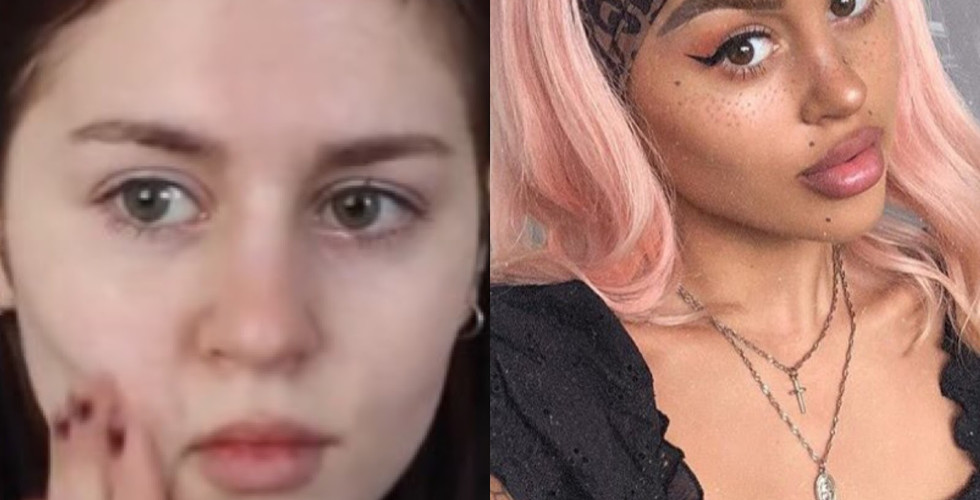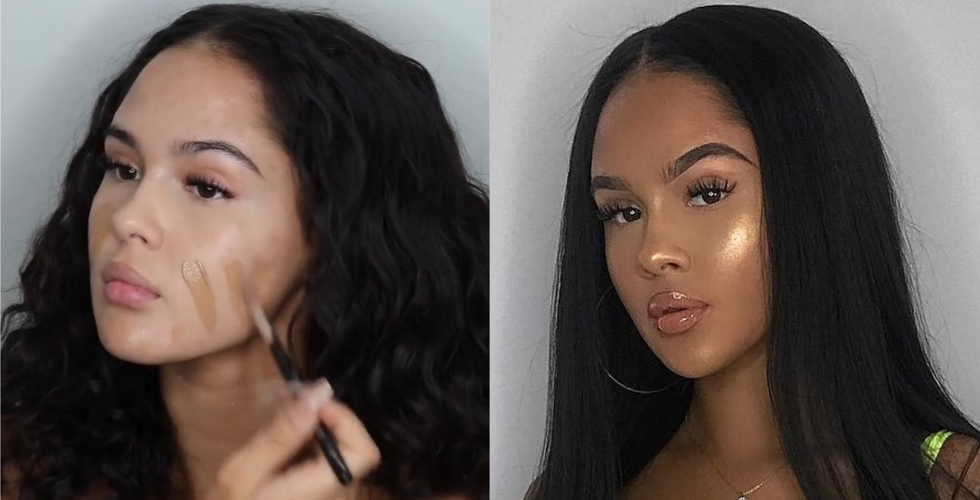Atlanta (2016-2022)
Donald Glover is a man of many talents. He raps, he sings, he writes, he produces, he acts. Atlanta was created by Glover and is directed by Hiro Murai, who also directed the This is America (2018) music video. The term Afro-Surrealism was first established in 1974 by the writer Amiri Baraka. Atlanta takes a surrealistic, satirical, often bleak look at the black experience. It examines issues like race, celebrity culture and gender identity. There are many times it feels removed from reality. There's a hazy, unsettling quality to it that feels Lynchian. Glover himself described the show as "Twin Peaks with rappers".

Surrealism
In the pilot episode Earn, played by Glover, is riding the bus at night when a man wearing a suit and bow tie asks him to bite his Nutella sandwich. The man is reminiscent of The Giant from Twin Peaks. One minute he's sitting next to Earn, the next he's disappearing into the woods with a dog. One of the most unsettling episodes is Season 2, Episode 6 'Teddy Perkins'. Hiro Murai broke this episode down scene by scene on YouTube. People have drawn comparisons from Teddy to Michael Jackson. Darius, who is played by LaKeith Stanfield, is one of the characters who often feels removed from reality. The way he sees life is different to the other characters. This episode begins to feel like a horror movie, reminiscent of Jordan Peele's Get Out (2017).
Transphobia and Homophobia in the Black Community
Earn starts working for his rapper cousin Alfred aka Paper Boi. In Episode 2, 'Streets on Lock' Earn and Paper Boi end up in jail. Paper Boi is bailed out, and Earn is left waiting around. In one of the jail scenes, Earn is sitting between a man and a transgender woman. The man is loudly talking to the trans woman, reminiscing about when they used to date. One of the other inmates overhears and says: "Your ex-girlfriend a man. Why you think she in the jail with the men? She'd be on the other side." He calls him gay and you hear laughter in the background. He gets defensive, and says that they all have sex with men while they're in jail. Earn says:
Sexuality is a spectrum, you can really do whatever you want.
In Episode 7, 'B.A.N.' Paper Boi appears on a chat show called Montague to discuss the outlook of sexuality and its effects on black youth and culture. The transgender advocate guest says she did some research on Paper Boi's lyrics, and found them to be "very pro-sexual spectrum" as he doesn't specify the gender of the person he's rapping about. Paper Boi dismisses her argument and proceeds to confirm his transphobia by misgendering a trans woman: "Look, I'm allowed to say that it's weird."

The Cycle of Poverty
Earn has a complicated relationship with the mother of his child, Van. They appear to be separated, but still live together and share the same bed. Van asks him "Why are you always turning me into the angry black woman?" and criticises him for his inability to financially support his child. When Earn tells Paper Boi he's struggling to make commission from his job at the airport, he tells him he'd be better off selling drugs. In Series 1 Episode 4, 'The Streisand Effect' Earn follows Darius on one of his business escapades. Darius buys a Cane Corso dog, and sells it to a breeder. Earn asks when they'll get paid, and Darius explains that each puppy will be worth $2000 but they won't get the money until September. Earn realises his financial situation has not been helped by this ordeal: "I'm poor Darius, and poor people don't have time for investments because poor people are too busy trying not to be poor". This highlights a harsh truth that it is easier for people who have disposable income to make more money with business ventures.
Race and Identity
In the Atlanta universe, Justin Bieber is black. This episode conjures questions about how differently the media and public would perceive an artist like Justin Bieber if he wasn't white. Paper Boi watches him being obnoxious, disrespecting people, urinating on walls, and questions how talented he actually is. The people around him defend Bieber. Meanwhile, Earn is called over by a white woman who mistakes him for someone called Alonzo. Paper Boi approaches the white reporter from earlier on in the episode, and asks if she wants to interview him sometime. She tells him: "Play your part. People don't want Justin to be the asshole. They want you to be the asshole. You're a rapper, that's your job."
Atlanta goes even further analysing identity issues with regards to race. In real life we have seen people, mostly white individuals, who claim to be 'transracial'. For example, Oli London, who claimed he was a transracial Korean and made attempts to resemble Jimin from BTS through extensive surgery. We meet Antoine Smalls, a black teenager who now identifies as Harrison Booth, a 35-year-old white man from Colorado. This episode is a hilarious satirical take on the concept of 'transracial identity'. Rachel Dolezal became a controversial figure when it was revealed that she had been pretending to be a black woman, by darkening her skin and appropriating black womens' hairstyles. Her own family publicly stated that she is in fact white. Influencers like Emma Hallberg and singers like former member of Little Mix Jesy Nelson have also been accused of blackfishing. The Kardashians and Jenners have been criticised for appropriating black culture countless times.
Examples of cultural appropriation/blackfishing/Asianfishing
Harrison is asked if he thinks if the rap community's treatment of LGBTIQA+ individuals is part of a larger problem within the black community, and his response reveals his own prejudice: "Why would I ever tolerate something like that? Marriage is meant for a man and a woman. That's an abomination." This feels like a reference to a 2015 Caitlyn Jenner interview, when she said she does not support gay marriage. Jenner is an incredibly privileged transgender woman, and had the potential to be a positive representative and ally to the rest of the community, but instead chose to publicly shun gay people. It's a real life reminder that just because someone is part of a marginalised group, doesn't mean they are incapable of negatively impacting on other marginalised individuals.
Easter Egg: Childish Gambino Awaken, My Love! (2016) vinyl in the background
Earn and Van go to a Juneteenth party held by a former friend of Van's because it's a good networking opportunity for her. Earn meets Monique's white husband who is convinced he recognises Earn from a country club, which Earn has never been to. Earn orders a drink from the bar and is informed by the barman that there is a fixed drink menu, so he has no choice but to order one of the crass themed drinks, "Frozen Freedom Margarita", "Emancipation Eggnog" and "Plantation Poison". Monique's husband is shocked that Earn hasn't been to the "motherland" Africa (assuming that he has African heritage purely because he's black). He fires questions at him about his identity, demanding to know where his ancestors are from. Earn says he doesn't know exactly what his heritage is because slavery meant that his ethnic identity was erased, and he hasn't been to Africa because he can't afford it. We cannot decide our race, that is something we are born with and it cannot be altered. A non-black person cannot wake up one day and decide that they are black. Adopting the 'aesthetic' of a black person doesn't make someone black, they haven't lived their experience.
I highly recommend Atlanta. The actors' performances are great, it's a unique concoction of social commentary and dark satire. This post doesn't include all the great moments from the show, this is really just the tip of the iceberg. I haven't watched Season 3 and 4 yet, but I plan to asap.


























Comentarios